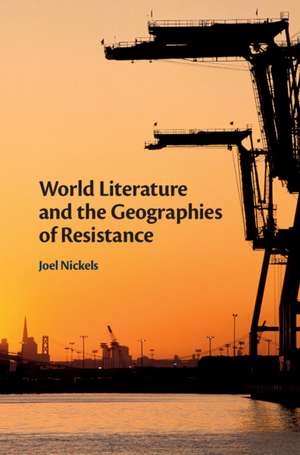World Literature and the Geographies of Resistance
Autor Joel Nickelsen Limba Engleză Hardback – 6 iun 2018
Preț: 516.53 lei
Preț vechi: 688.47 lei
-25% Nou
Puncte Express: 775
Preț estimativ în valută:
98.85€ • 102.57$ • 82.62£
98.85€ • 102.57$ • 82.62£
Carte indisponibilă temporar
Doresc să fiu notificat când acest titlu va fi disponibil:
Se trimite...
Preluare comenzi: 021 569.72.76
Specificații
ISBN-13: 9781108428491
ISBN-10: 1108428495
Pagini: 228
Dimensiuni: 159 x 235 x 17 mm
Greutate: 0.47 kg
Editura: Cambridge University Press
Colecția Cambridge University Press
Locul publicării:Cambridge, United Kingdom
ISBN-10: 1108428495
Pagini: 228
Dimensiuni: 159 x 235 x 17 mm
Greutate: 0.47 kg
Editura: Cambridge University Press
Colecția Cambridge University Press
Locul publicării:Cambridge, United Kingdom
Cuprins
The literature of spatial occupation: a nonstate research agenda; 1. The general strike in the literature of decolonization: Ousmane Sembene / Miguel Ángel Asturias / Patrick Chamoiseau; 2. Nonstate internationalism: from Claude McKay to Arundhati Roy; 3. World literature as futurology: Melvin Tolson, T. S. Eliot, and the poetics of postcapitalist governance.
Recenzii
'The book constitutes a timely political intervention in its call for a new approach to world literature and culture, and serves to remind us that world literature, read in this new way, 'can help us visualize modes of life and forms of relations that pose alternatives to the regime of legalized dispossession that goes under the name of globalization'.' Abdullah M. Dagamesh, Modern Language Review
Notă biografică
Descriere
This book approaches World Literature as an archive of strategies for resistance, and focuses on the nonstate organization of democratic processes.
